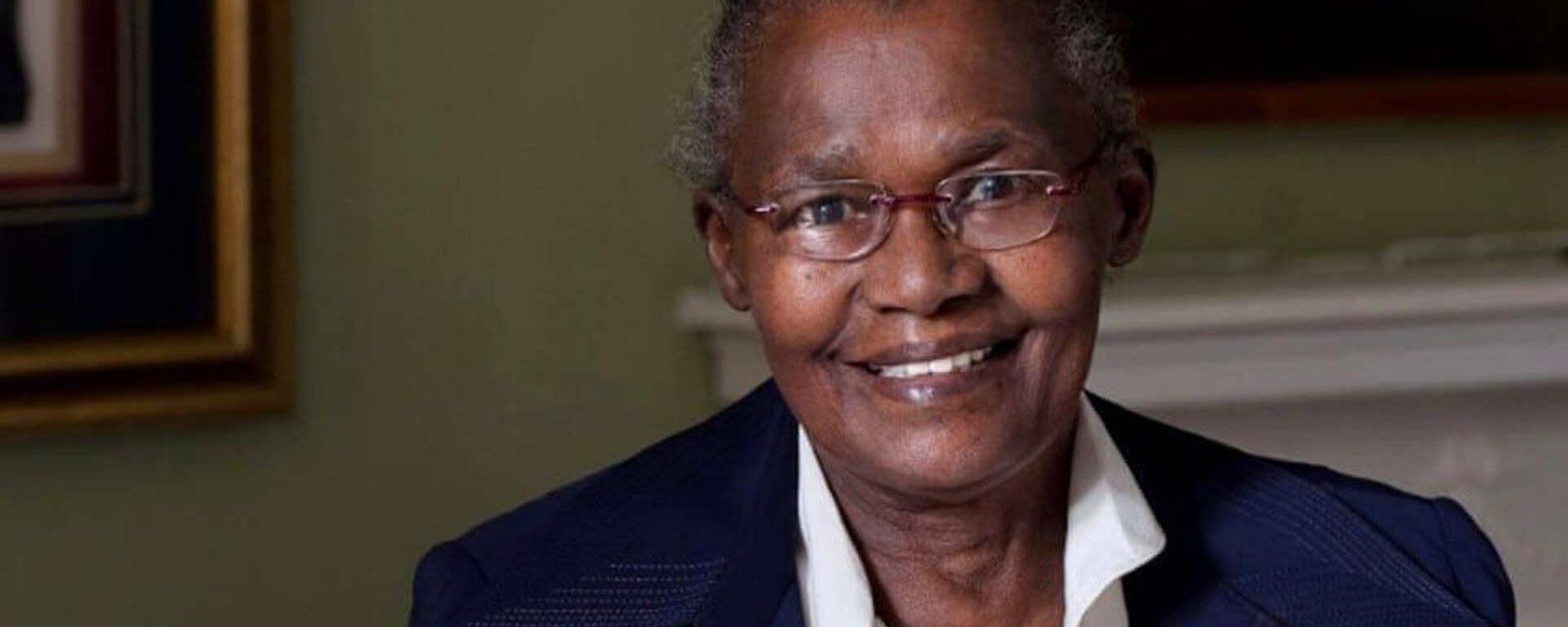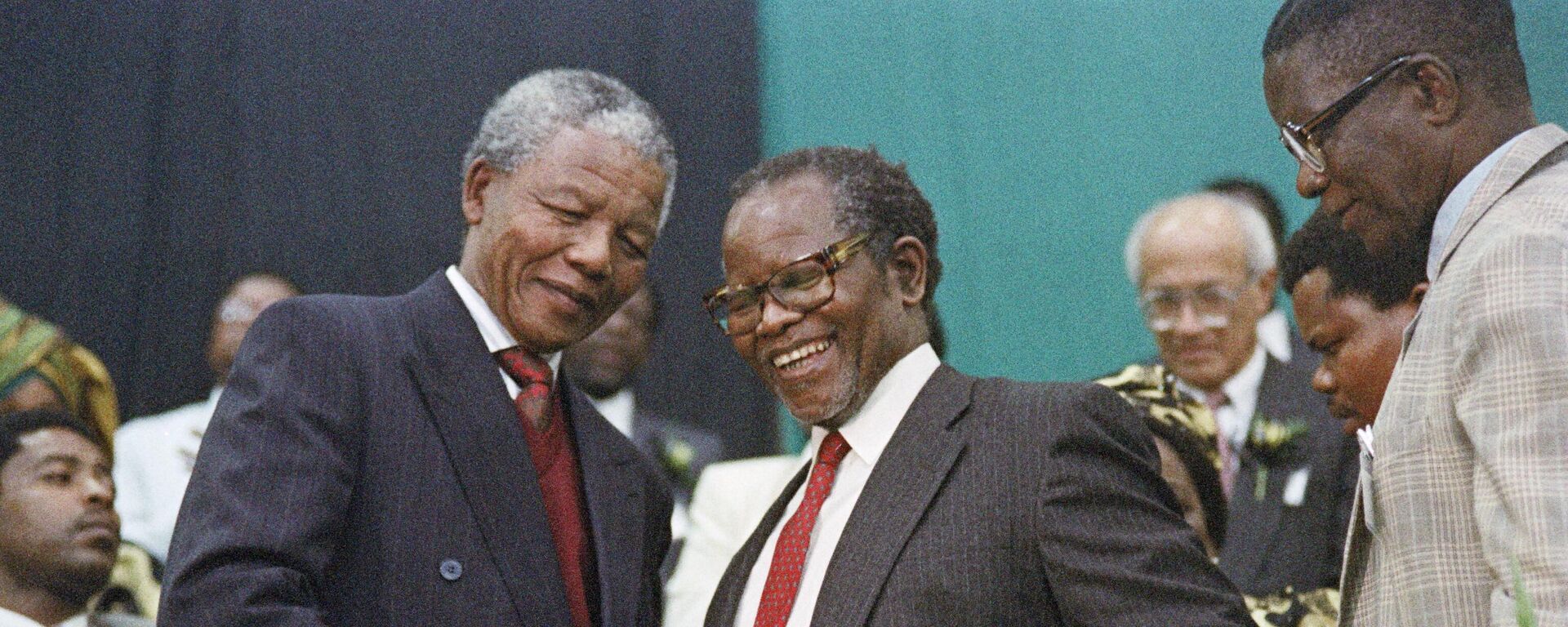https://en.sputniknews.africa/20231207/tatamkhulu-afrika-a-writer--a-fighter-1064007262.html
Tatamkhulu Afrika: a Writer & a Fighter
Tatamkhulu Afrika: a Writer & a Fighter
Sputnik Africa
December 7, 2023 marks the 103rd birthday of the late South African writer and poet Tatamkhulu Afrika, who dedicated his life to fighting apartheid and... 07.12.2023, Sputnik Africa
2023-12-07T18:17+0100
2023-12-07T18:17+0100
2023-12-07T18:17+0100
south africa
egypt
southern africa
world war ii
art
literature
apartheid
anti-apartheid struggle
sub-saharan africa
north africa
https://cdn1.img.sputniknews.africa/img/07e7/0c/07/1064009587_0:195:1073:799_1920x0_80_0_0_d3be3df220616bb9410703813c209629.jpg
Tatamkhulu Afrika was born Mogamed Fu'ad Nasif in Egypt in 1920 to an Arab father and a Turkish mother. His parents died of influenza when he was two years old. Then, he was adopted by British family friends and grew up in South Africa under the name John Carlton.The future novelist and poet joined the army during World War II and fought in North Africa, where he was captured by the Germans and spent four years as a prisoner of war. His wartime and captivity experiences influenced his later writing, which often explored themes of violence, oppression, and survival.After the war, he left his adoptive family and moved to Namibia, where he was adopted again by an Afrikaans family and became Jozua Joubert. Later, he converted to Islam in 1964 and changed his name to Ismail Joubert.Returning to South Africa, Joubert lived in District 6, a mixed-race community in South Africa's Cape Town. The district was later declared a "whites only" area and demolished by the white minority government in the 1960s.Despite losing his home and possessions, but not his spirit, he continued to write and protest the destruction of District 6 and the apartheid system.Joubert joined the anti-apartheid movement and founded Al-Jihaad, an Islamic organization allied with Nelson Mandela's African National Congress (ANC) and its armed wing, Umkhonto We Sizwe.His activism let to arrest and torture by the apartheid regime, during which he witnessed the brutal use of homosexual sex as a weapon of intimidation and humiliation against political prisoners, which later inspired some of his most controversial and powerful poetry.Afrika emerged as a respected and influential figure in the South African literary scene, winning recognition for his works and several awards, including the gold Molteno Award for lifetime contributions to South African literature.The author wrote novels, short stories, and poetry in English and Afrikaans, reflecting his diverse and complex identity and experiences and his resistance against apartheid. Some of his work has been translated into French. The writer also mentored young writers and activists, and supported various causes and charities.Some of his most acclaimed works are Bitter Eden (2002), a novel based on his time as a prisoner of war in Italy and Egypt, where he endured physical and emotional abuse and explored his sexuality; Nothing’s Changed (2002), a poem that expresses his anger and frustration at the persistence of racial inequality and injustice in post-apartheid South Africa; The Lemon Tree (1995), a collection of poems that reflects his love for his wife, his faith, and his people, as well as his pain and loss over the destruction of District 6; and Nine Lives (1991), his first published work after a long hiatus, which contains autobiographical stories and poems.Tatamkhulu Afrika passed away on December 23, 2002, at the age of 82, following a car accident shortly after the publication of his last novel, Bitter Eden. He left behind a rich and remarkable legacy of literature and activism, courage, compassion, love, and resistance.
https://en.sputniknews.africa/20231103/remembering-lauretta-ngcobo-a-brilliant-voice-in-african-womens-literature-1063282136.html
https://en.sputniknews.africa/20231027/celebrating-oliver-tambos-legacy-a-life-dedicated-to-equality--justice-1063115115.html
south africa
egypt
southern africa
north africa
Sputnik Africa
feedback@sputniknews.com
+74956456601
MIA „Rossiya Segodnya“
2023
Muhammad Nooh Osman
https://cdn1.img.sputniknews.africa/img/07e7/04/0a/1058467512_0:0:1280:1280_100x100_80_0_0_ec723833bcbfcaed2e21952965ad99e4.jpg
Muhammad Nooh Osman
https://cdn1.img.sputniknews.africa/img/07e7/04/0a/1058467512_0:0:1280:1280_100x100_80_0_0_ec723833bcbfcaed2e21952965ad99e4.jpg
News
en_EN
Sputnik Africa
feedback@sputniknews.com
+74956456601
MIA „Rossiya Segodnya“
Sputnik Africa
feedback@sputniknews.com
+74956456601
MIA „Rossiya Segodnya“
Muhammad Nooh Osman
https://cdn1.img.sputniknews.africa/img/07e7/04/0a/1058467512_0:0:1280:1280_100x100_80_0_0_ec723833bcbfcaed2e21952965ad99e4.jpg
south africa, egypt, southern africa, world war ii, art, literature, apartheid, anti-apartheid struggle, north africa, african national congress (anc)
south africa, egypt, southern africa, world war ii, art, literature, apartheid, anti-apartheid struggle, north africa, african national congress (anc)
Tatamkhulu Afrika: a Writer & a Fighter
Muhammad Nooh Osman
Writer/Editor
December 7, 2023 marks the 103rd birthday of the late South African writer and poet Tatamkhulu Afrika, who dedicated his life to fighting apartheid and injustice.
Tatamkhulu Afrika was born Mogamed Fu'ad Nasif in Egypt in 1920 to an Arab father and a Turkish mother. His parents died of influenza when he was two years old. Then, he was adopted by British family friends and grew up in South Africa under the name John Carlton.
The future
novelist and poet joined the army during World War II and fought in North Africa, where he was captured by the Germans and spent four years as a prisoner of war. His wartime and captivity experiences influenced his later writing, which often explored themes of violence, oppression, and survival.
After the war, he left his adoptive family and moved to Namibia, where he was adopted again by an Afrikaans family and became Jozua Joubert. Later, he converted to Islam in 1964 and changed his name to Ismail Joubert.
Returning to South Africa, Joubert lived in District 6, a mixed-race community in South Africa's Cape Town. The district was later declared a "whites only" area and demolished by the white minority government in the 1960s.
Joubert refused to be classified as "white" (although he could be, due to his Arab and Turkish ancestry) and chose to remain with those deprived of rights.
Despite losing his home and possessions, but not his spirit, he continued to write and protest the destruction of District 6 and the apartheid system.
Joubert joined the anti-apartheid movement and founded Al-Jihaad, an Islamic organization allied with
Nelson Mandela's African National Congress (ANC) and its armed wing, Umkhonto We Sizwe.
His activism let to arrest and torture by the apartheid regime, during which he witnessed the brutal use of homosexual sex as a weapon of intimidation and humiliation against political prisoners, which later inspired some of his most controversial and powerful poetry.
The writer and fighter was given the name Tatamkhulu Afrika, meaning "Grandfather Africa," by his comrades in the struggle, which he adopted for the rest of his life.
Afrika emerged as a respected and influential figure in the South African literary scene,
winning recognition for his works and several awards, including the gold Molteno Award for lifetime contributions to South African literature.
The author wrote novels, short stories, and poetry in English and Afrikaans, reflecting his diverse and complex identity and experiences and his resistance against apartheid. Some of his work has been translated into French. The writer also mentored young writers and activists, and supported various causes and charities.
Some of his most acclaimed works are Bitter Eden (2002), a novel based on his time as a prisoner of war in Italy and Egypt, where he endured physical and emotional abuse and explored his sexuality; Nothing’s Changed (2002), a poem that expresses his anger and frustration at the persistence of racial inequality and injustice in post-apartheid South Africa; The Lemon Tree (1995), a collection of poems that reflects his love for his wife, his faith, and his people, as well as his pain and loss over the destruction of District 6; and Nine Lives (1991), his first published work after a long hiatus, which contains autobiographical stories and poems.
Tatamkhulu Afrika passed away on December 23, 2002, at the age of 82, following a car accident shortly after the publication of his last novel, Bitter Eden. He left behind a rich and remarkable legacy of literature and activism, courage, compassion, love, and resistance.
He was a writer and a fighter, a grandfather and a hero, a chameleon and a legend. He was Tatamkhulu Afrika.




